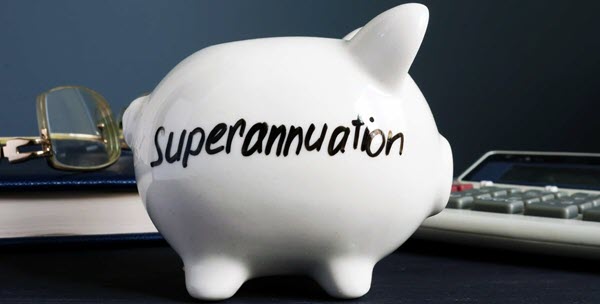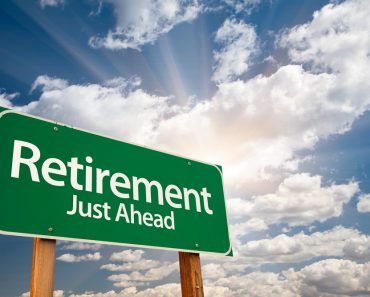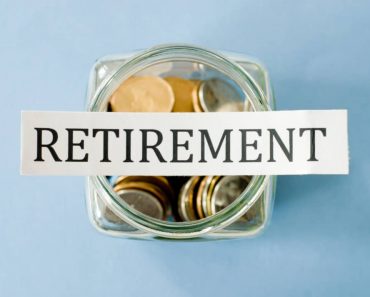
New Zealand Superannuation (NZ Super) is a federal allowance paid to Kiwis aged 65 years or above. Any qualified New Zealander earns NZ Super regardless of how much they gain from paying jobs, investment, savings, and what other properties they own.
If you are 65 years of age or older, you are eligible to receive NZ Super payments and a SuperGold card.
Who is eligible for New Zealand Superannuation?
You are eligible for NZ Super If you:
- are aged 65 or older;
- are one of the following: a New Zealand citizen/a permanent resident/holder of a residence class visa;
- are ordinarily resident in the Cook Island, Niue, Tokelau or New Zealand when you apply
- have lived in New Zealand for at least 10 years since age 20;
- have lived in New Zealand, Niue, Tokelau, or the Cook Islands (or a combination of these) for at least 5 years since age 50.
Residence in a country with which New Zealand has mutual social security arrangements counts as residence in New Zealand.
You may be eligible for NZ Super with less than 10 years of residency if you have moved to New Zealand from a country with which New Zealand has mutual social security arrangements.
Note: You don’t have to be retired from work to get NZ Super as it’s not income tested.
SuperGold Card
Your SuperGold Card will be delivered to you immediately after you have received New Zealand Superannuation.
It provides you discounts, deals, and a variety of government concessions (such as free off-peak public transport), as well as subsidized services from the local authority.
For more information and to sign up for the SuperGold update newsletter, please go to the SuperGold website
How do you apply for New Zealand Superannuation?
You can apply for New Zealand Superannuation online through MyMSD unless you live overseas.
You can apply for NZ Super if either:
- your 65th birthday will be in the next 12 weeks, or
- you’re 65 now.
If you’re 64 years old and you don’t turn 65 in the next 12 weeks, you ought to wait till your birthday is in the next 12 weeks.
What to provide when you apply for New Zealand Superannuation
When you apply for NZ Super, you have to prove your identity and the validity of your documentation. You must upload these documents with your online application.
You must provide original documents or certified true copies.
When is the NZ Super payment date?
NZ Super payments are made every second Tuesday. If there’s a public holiday, payments are made earlier.
Payment dates in 2020
The payment dates for 2020 are:
- January 7, 21.
- February 4, 18.
- March 3, 17, 31.
- April 14, 28.
- May 12, 26.
- June 9, 23.
- July 7, 21.
- August 4, 18.
- September 1, 15, 29.
- October 13, 27.
- November 10, 24.
- December 8, 22.
How much is NZ Super?
The amount of NZ Super payments is fixed by the government yearly. The prices are checked and updated to take into account any rise in living costs (inflation) and real incomes.
The NZ Super after-tax limit for married couples (both of whom qualify) is based on 66% of the average after-tax ordinary time wage. For single citizens, the NZ Superannuation amount after tax is 40% of the average income.
NZ Super is paid fortnightly.
Here are the current NZ Super rates.
How much can you get under NZ Superannuation?
How much you get depends on your current circumstances, such as:
- whether you are married, single, or in a relationship;
- whether you included your partner in your NZ Super payments or not;
- your living situation if you are single;
- any benefit or pension overseas you or your partner (if you have one) may get;
- whether you receive payments by Accident Compensation Corporation (ACC).
What are your obligations to NZ Super?
There are things you are obligated to do regarding NZ Super. If you neglect these obligations, your payments could stop or be reduced.
You must notify the government if either you or your partner:
have changes to personal details, for example:
- contact information
- address
- bank account number
- name
have changes to your living situation, for example, you:
- get married or separated;
- start or end a civil union;
- start or end a de facto relationship;
- start or stop living alone;
- intend to live overseas;
- intend to travel overseas for longer than 26 weeks;
- are admitted to or discharged from hospital;
- have been granted an overseas benefit or pension;
- are imprisoned/held in custody on remand;
- have any other change that may affect your New Zealand Super rate or entitlement.
What happens if you don’t meet your obligations?
If you don’t tell the government about changes in your or your partner’s life, it might affect your NZ Super benefits in the following ways:
- your New Zealand Superannuation may be stopped;
- you will have to refund the entire value of any overpayment you have received;
- you can be charged a penalty (up to 3 times the amount of the overpayment);
- you can be charged, fined, or jailed.
Will overseas pension affect your NZ Super?
If you get a pension from another country, the amount of NZ Super you receive will be affected.
You can get all of the information on Work and Income as well as people who can guide you on accessing the overseas state social security benefits you are eligible for, and how you can have it paid.
You can contact Work and Income from within New Zealand on 0800 552 002.
What happens if your partner is included in your NZ Super?
You are obligated to give a notification if either you or your partner:
- have a change in work situation;
- have started a business or become self-employed;
- Have changes in income or financial circumstances.
What happens to your NZ Super after you access it?
To withdraw your super, you may opt to collect it as a retirement income stream, a lump sum, or a combination of both.
If you want a lump sum, the full value of your superannuation fund will be credited to your bank account. If you’re going for an income stream, you’ll receive a fixed payment to your bank account fortnightly/monthly, etc. The combined option will allow you to receive regular payments while having the remainder of money in your super fund earning you investment gains.
When choosing how to withdraw the super, you must remember that pulling the money out as a lump sum will have substantial tax consequences and effects on any Centrelink benefits you might be entitled to.
What will happen to your NZ Super if you travel overseas?
When you have New Zealand Superannuation, you can go anywhere in the world and you can take up to 100% of your gross salary with you. What you are going to get depends on where you’re headed and how long you’ve been living in New Zealand.
The laws that will apply to you will depend on where you want to go, how long you want to go for, if you want to stay in a foreign country, or if you are going on a holiday.
What is the code for your NZ Super?
You might have a different source of income when you start getting New Zealand Superannuation. You ought to make sure you have the right tax code.
When you finish your NZ Super application, you have to pick a tax code. The tax code you pick depends on whether you have other income and, if so, the source of it.
If New Zealand Superannuation is your only income
If the amount of money you receive as NZ Super is larger than your wages, it is your primary source of income. Your NZ Super tax code is M unless you have a student loan. If you have a student loan, the tax code is M SL.
If you’re still working
If the amount you receive as NZ Super is lower than your wage or pension, it is your supplementary source of revenue, and you ought to use one of the following tax codes.
If the overall amount you earn in a year, including your NZ Super, is:
- less than or equivalent to $48,000, the New Zealand Superannuation will be charged at 17.5%, and your code is S;
- between $48,001 and $70,000, the code is SH, and the NZ Super will be charged at 30%;
- more than $70,000, your code is ST, and the NZ Super will be charged at 33%.
Why should you merge your NZ Super?
If you have more than one job, you’re more likely to have several super accounts, particularly if you’re happy to use your employer’s time.
However, transferring and merging your many NZ Super accounts into one account will help you simplify the management of your super accounts and save money. This is called merged super accounts.
The biggest reason people don’t combine their accounts is because they don’t know such an arrangement was available or possible. One in five people doesn’t know what to do.
Another explanation why people have numerous accounts is that they find the process of combination too difficult. In the past, combining accounts meant filling out several forms, but now all you have to do is use myGov website.
Can you access your NZ Super before the age of 65?
You can get early access to your super in incredibly limited scenarios.
Some promoters may tell you that by changing it to a self-managed super fund, you could have early access to NZ Super. Such schemes are illegal and you could end up paying some serious fines if you are found to be involved. See illegal early release of super for more information.
Below are some of the limited scenarios in which you could be granted early access to your NZ Super account.
Access due to extreme financial difficulty
You need to contact the super provider to request access to your super because of extreme financial difficulty. You will be able to withdraw your super if you satisfy any of these conditions:
- You have received government income support benefits on a permanent basis for 26 weeks.
- You are struggling to meet immediate family living expenses.
When you withdraw your super due to extreme financial difficulty, it will be taxed as a lump sum. The minimum amount you can withdraw is $1,000, and the maximum amount is $10,000. If the super balance is less than $1,000, you can withdraw up to the remaining balance after tax.
Access due to serious health issues
If you have a terminal medical condition, you will be able to access your super. The situation is considered a terminal medical condition if all of these requirements are met:
- Two licensed medical practitioners have approved, together or independently, that you have a condition or disability which is likely to result in death within 24 months of the date of signing the certificate.
- At least one of the licensed medical practitioners is an expert in a field specific to your disease or condition.
- The certification cycle of 24 months has not expired.
Access due to temporary incapacity
- You will be allowed access to your super if you need to work fewer hours or are temporarily unable to function because of a physical or mental disorder.
- These release criteria are normally used to access insurance benefits related to the super account.
- You’ll get your super in regular payments (income stream) for the time you’re unable to work. Super withdrawals due to temporary incapacity are taxable as a super-income stream.
Access due to permanent incapacity
- You will be able to use your super if you are impaired. This form of super withdrawal is referred to as a ‘disability super benefit.’
- Your fund must be confident you have a lifelong physical or mental health problem which is likely to preclude you from ever working again in a position you have been qualified to do by training, education or experience.
- You will obtain the super either as a lump sum or as a regular payment (income stream).
Super of less than $200
You can access your super if:
- You lost your job, and the super account balance is less than $200.
- You’ve found a ‘lost super’ account with a balance of less than $200.
What is the difference between superannuation and pension?
Super funds and pension funds are part of the superannuation programme. Simply put, a super fund is what you’re contributing to when you’re planning for retirement, and a pension fund is a scheme that earns you money after you’re retired.
You are required to make a contribution to a super fund. Pension plans cannot accept additional contributions once they have been set up.
Typically, when an individual hits retirement age, they’re going to ‘roll over’ their super fund to a pension fund. In certain cases, when individuals are approaching retirement age, it might be reasonable for one person to have both a super fund and a pension fund at the same time.
Both the super and the pension plans are entitled to favourable tax arrangements. In certain cases, pension funds do not incur any tax at all, while super funds typically pay a 15% tax rate. Usually, this is a significantly smaller tax rate than most people pay.
If you’re ready to apply for NZ Super, start the process by clicking here.
The bottom line
Note that Super NZ is intended to finance your retirement, so any early exit will have an effect on the amount you will have when you retire. You will also forfeit the impact of compound interest on the withdrawn money. This impact can be significant over time.
It’s worth ii to explore objective expert guidance as to whether an early release of your super is suitable for your specific circumstances. You may also need help determining whether you will be able to use additional forms of funding from Centrelink or government agencies to get you through a difficult patch.
FAQs
Can I get NZ Super if I live in Australia?
Your Australian citizenship status will reflect the time you spent in other countries. You will continue to collect your New Zealand Superannuation (NZ Super) after you leave New Zealand.
How much tax do I pay on my super?
If your New Zealand superannuation is a secondary source of income and the total value you will earn in a year is less or equal to $48,000, it will be taxed at 17.5%. If you will earn between $48,001 and $70,000, it will be taxed at 30%.
Can I access my super at 55 and still work?
You can access your New Zealand superannuation when you get to the age that is 10 years before the official retirement age of 65. But you can only withdraw a certain amount periodically based on the formula stated in the Superannuation Scheme Rules.
Can I withdraw my super at 60?
To be eligible for New Zealand superannuation, you have to be 65 years of age. But you can withdraw the entire amount of your investment in the Superannuation Class on the day you hit age 60 if you can convince the Supervisor that you have retired permanently.
Is superannuation compulsory in New Zealand?
No, saving for your retirement is not compulsory in New Zealand. So, if you are a low-income earner, the government won’t force you to contribute to superannuation.






